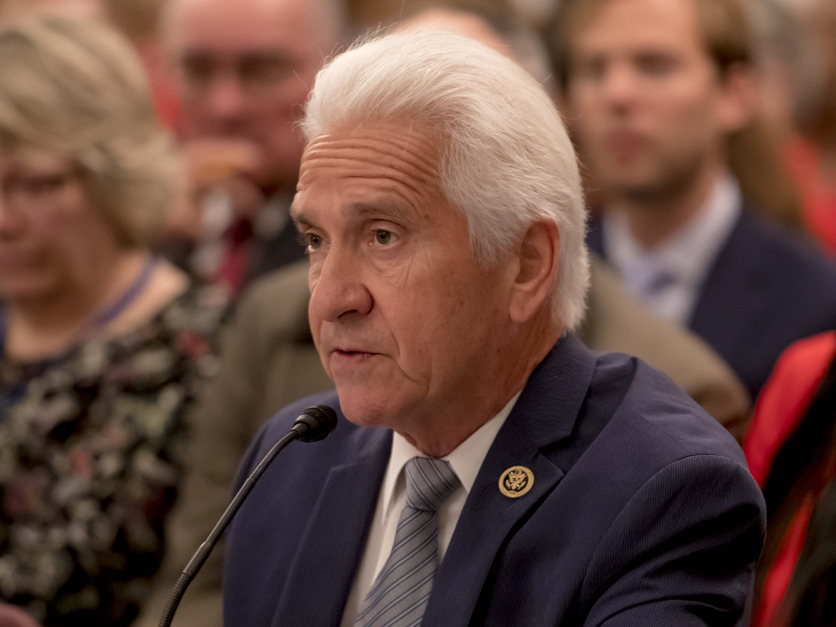Streamlined regulations, enforcement of trade agreements, and increased funding for university research are all needed to advance innovation in biotechnology, witnesses and House Agriculture Committee members said at a hearing Tuesday.
Members of the two subcommittees holding the hearing appeared to support the use of biotech, and gene editing in particular, to develop new plants and animals resistant to disease and able to help farming adapt to climate change.
One of the issues uniting the witnesses and many of the committee members is the current regulatory structure for making intentional genomic changes in animals. The Food and Drug Administration reviews such changes as if they were drugs.
"Through opening trade, investing in research, and streamlining our regulatory system we can help facilitate the use of biotechnology to address threats like food scarcity and climate change," Rep. Jim Costa, D-Calif., chairman of the Subcommittee on Livestock and Foreign Agriculture, said.
That subcommittee held the hearing together with the Subcommittee on Biotechnology, Horticulture and Research.
“Gene editing approaches are channeled into a regulatory approval process that is not well matched for how the technology alters the genome, is transmitted to subsequent generations, or the intended purposes,” said Jon Oatley, a professor at Washington State University’s College of Veterinary Medicine.
He said he supported a Memorandum of Understanding between the Departments of Agriculture and Health and Human Services released last year that proposed USDA assume authority over genetically engineered animals used for food while FDA, which falls under HHS' purview, would continue to regulate non-food uses.
But the MOU came at the tail end of the Trump administration, and USDA is now considering comments on the appropriate regulatory structure.
“There are ways in which we have to work collaboratively with our friends at FDA to make sure our regulatory system is able to respond quickly enough and be able to keep pace with the pace of change,” Ag Secretary Tom Vilsack told the House Ag Committee earlier this month.
His comments followed a letter from almost two-thirds of the ag committee to Vilsack and acting FDA Commissioner Janet Woodcock that said the “existing regulatory system is not conducive to the timely adoption” of genetic improvements in animals. “In the past 25 years, only two animals intended for agricultural purposes have been approved for use domestically by FDA.”
The letter was signed by — among others — House Ag Committee Chairman David Scott, D-Ga., Ranking Member Glenn “GT” Thompson, R-Pa., Del. Stacey Plaskett, D-V.I., chair of the Subcommittee on Biotechnology, Horticulture and Research, and Rep. Jim Baird, R-Ind., the top Republican on that subcommittee.
Elena Rice, chief scientific officer at animal biotech firm Genus PLC, said the focus of regulation should be on the end products, not on the technology used to produce them. In other words, if a product made using biotechnology could be created using conventional breeding, it should not be regulated differently.
The hearing featured questions from committee members on how biotechnology and gene editing can address issues such as food waste, nutritional deficits and animal diseases.
Oatley said research is now underway on how to transfer genes from warthogs, which can carry African Swine Fever but show no symptoms, into domestic pigs, which die quickly from ASF.
Interested in more news on farm programs, trade and rural issues? Sign up for a four-week free trial to Agri-Pulse. You’ll receive our content — absolutely free — during the trial period.
Fan-Li Chou, the American Seed Trade Association’s vice president for scientific affairs and policy, discussed the potential of gene editing to create non-browning varieties of apples and potatoes that could cut down on food waste.
Jack Bobo, CEO of food consulting firm Futurity, said the U.S. needs to clarify its regulatory process for animal biotech products in order to not fall behind other countries where such products have been approved.
He and Chou both mentioned Japan, which has streamlined its biotech regulations and approved a new GE tomato that helps lower blood pressure.
Witnesses and members also decried Mexico's stated intention to not import GE corn, as well as China's foot-dragging on the approval of new biotech traits.
Chou said the U.S. has to enforce the biotech provisions in the U.S.-Mexico-Canada Agreement, and said China will not be able to achieve its strategic goals without use of technology, including gene editing.
For more news, go to www.Agri-Pulse.com.


